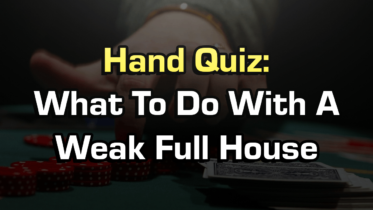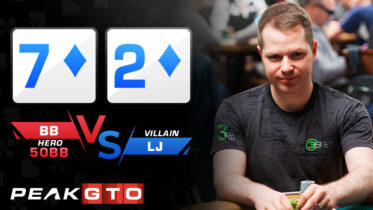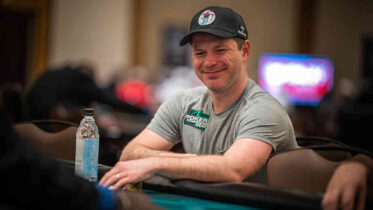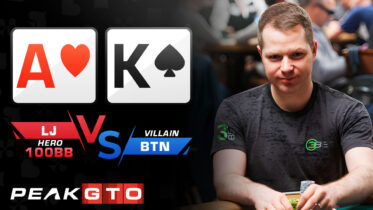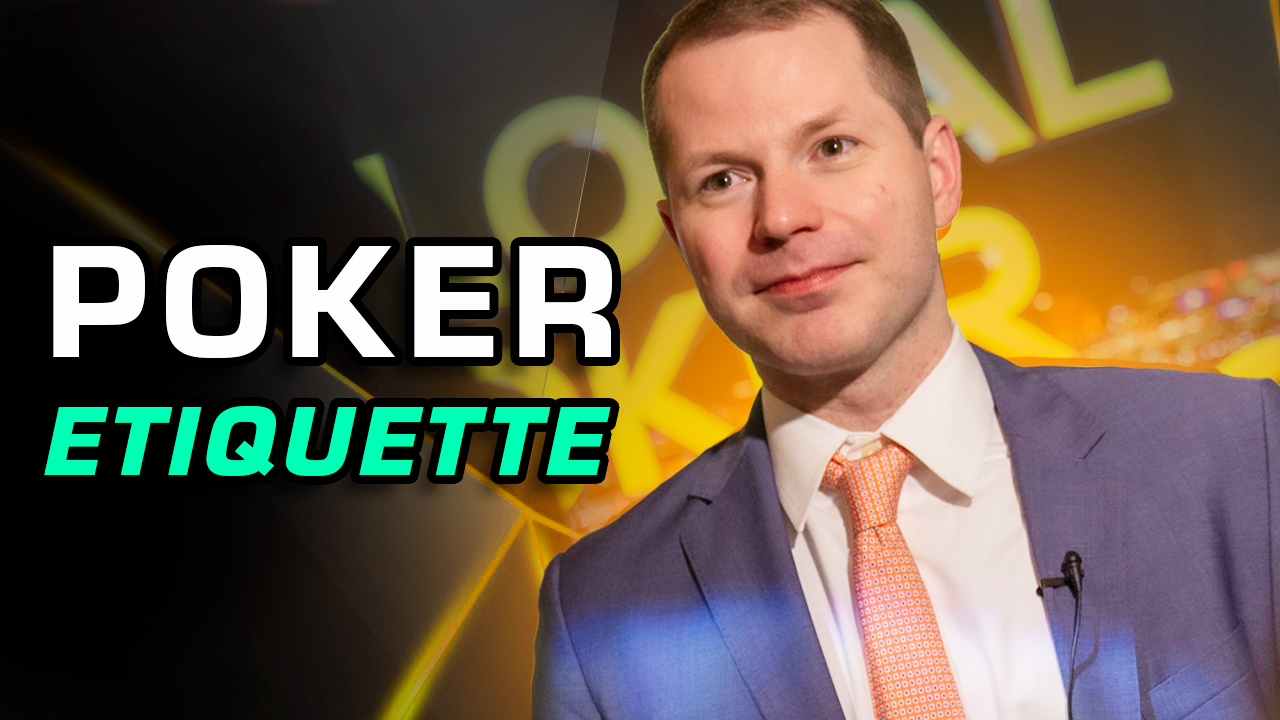You won’t see it often, but when three aces creep across the board, it can be hard deciding what to do with your hand. It only gets more complicated when all three aces come on the flop, if you have a low pocket pair for a full house how should you proceed? In this hand, I break down the best course of action for this exact scenario. Study this spot to prepare for one of the strongest flops you can see.
Scenario: You are six-handed in a $1,000 buy-in live tournament. You have 12,800,000 with blinds at 200,000-400,000 and look down at pocket fives in the big blind. A loose, aggressive player min-raises from under-the-gun to 800,000 and it folds around to you.
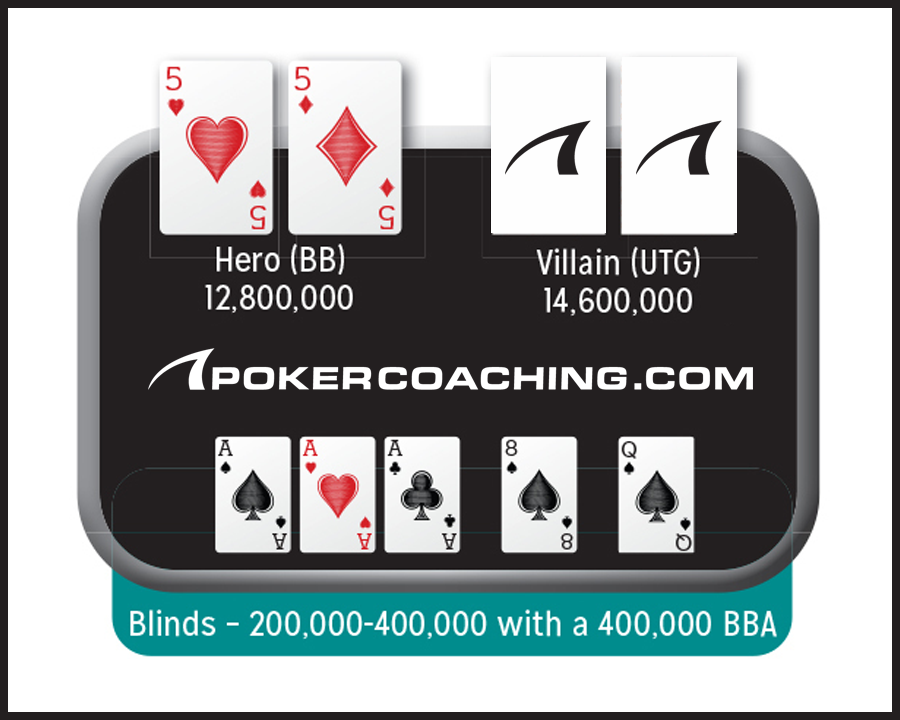
Playing Your Pocket Pair Preflop
Three-betting small is not a great option because when you face an all-in, you have to fold a hand with fairly high equity, and when your opponent calls your three-bet, you will usually not flop well. Going all-in does not have merit because when you get called against a presumably strong UTG range, you will be in terrible shape.
Folding is also not ideal because you really want to see a flop with hands that have a decent chance to improve to an effective nut hand. So, your best bet is to call and see the flop.
Action: You call. The flop comes A♦-A♥-A♣ and you check. Your opponent bets 450,000 (20% pot).
Playing The Flop
The Pot: 1,000,000
The Board: A♦-Q♥-3♣
Effective Stack: 30 Big Blinds Effective
Proceeding With Your Flopped Full House
With your flopped full house, you either have the best hand by a decent margin or you are drawing dead. When you have the best hand, you are still susceptible to getting outdrawn, which suggests raising has some merit. The problem is that your UTG opponent has lots of aces in their range as well as better full houses that will not fold. Call with your marginal made hand and proceed to the turn.
Action: You call. The turn is the 9♠ and you and your opponent both check. The river is the Q♠.
Playing The River
The Pot: 1,900,000
The Board: A♦-Q♥-3♣-9♠-Q♠
Effective Stack: 27 Big Blinds Effective
Navigating A Weird Full House On The River
From out of position with a hand that is likely good but could be crushed, your decent options are to check and call a bet or to bet small. Betting is quite strong because when you check and face a bet, if your opponent plays in a balanced manner, your decision will be indifferent, resulting in you winning no equity on average.
However, if you bet small, you can often extract a bit of value. Just be sure you also bet small some portion of the time when you have a really strong hand like quads. A big bet is not ideal because then when you get called, you will almost always lose to a better made hand.
You may also opt to check and fold to bet if you are confident that your opponent will rarely bluff when checked to and will usually only call a bet when you are beat. When you run this spot through a GTO solver, you will find that when you have between 48 and 55 percent equity against your opponent’s range, betting tiny is often ideal and may get you calls from some of the worst hands in their range.
Conclusion: You bet 600,000 and your opponent calls. After revealing your full house your opponent mucks their cards, rewarding you with the pot!
Want to check out the hundreds of interactive hand quizzes found on PokerCoaching.com? Check them out here.
